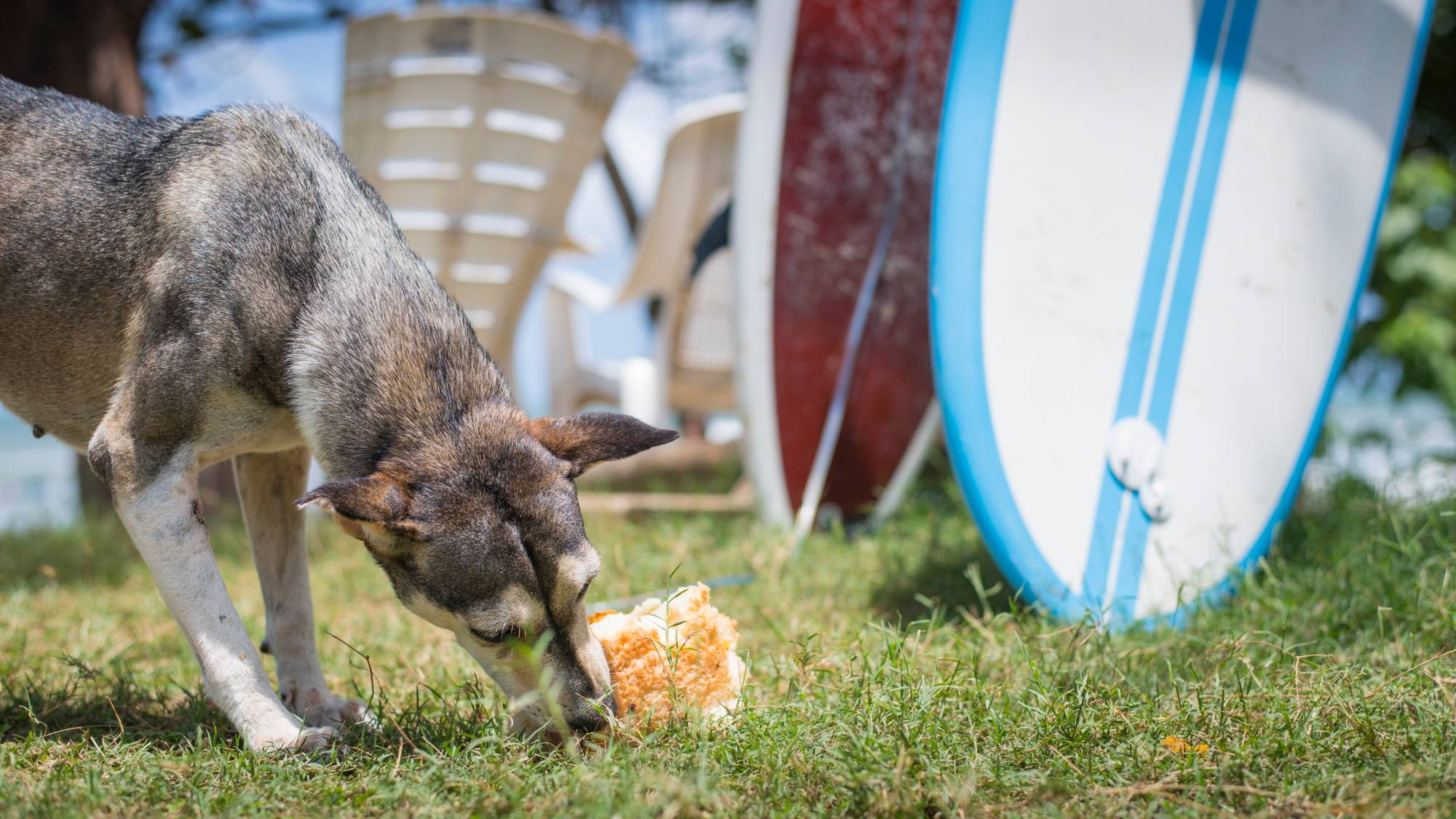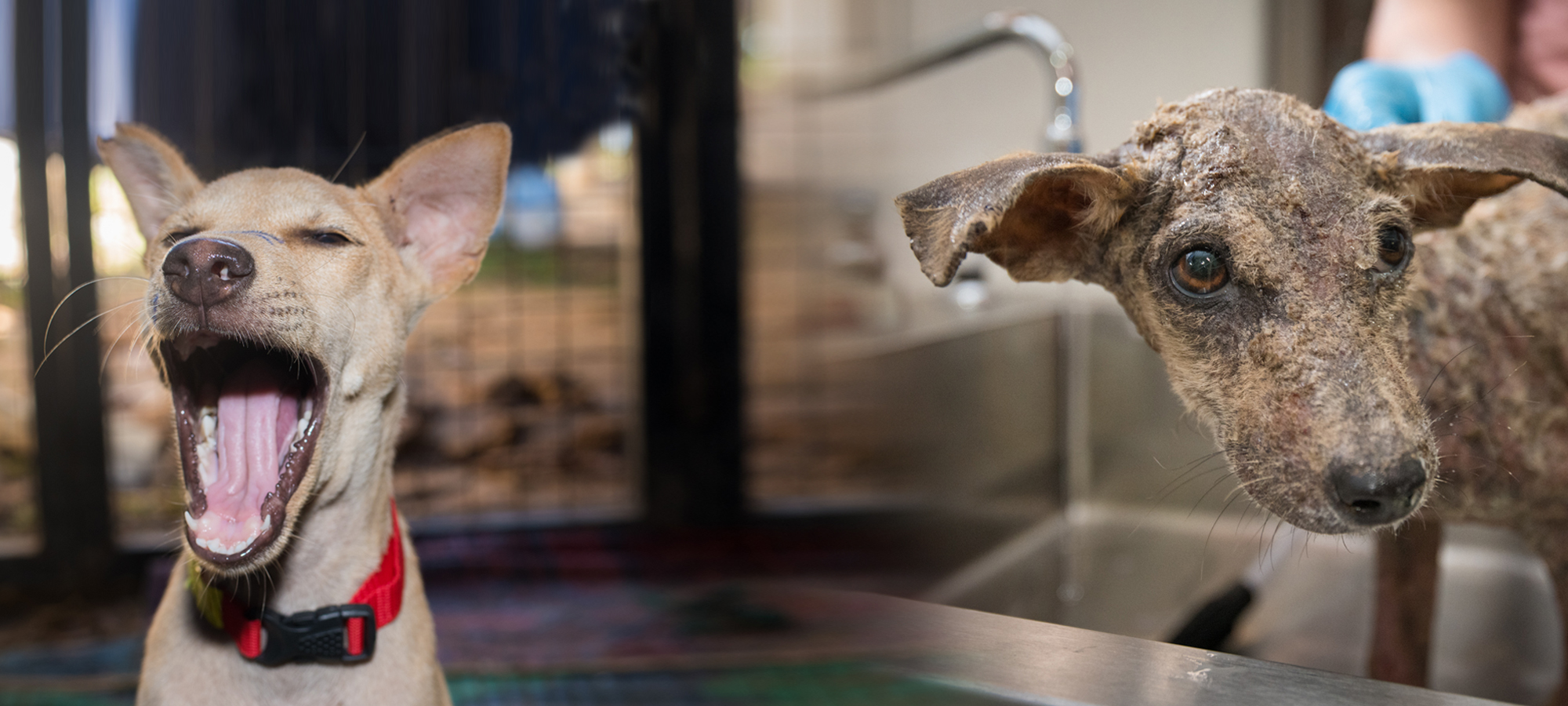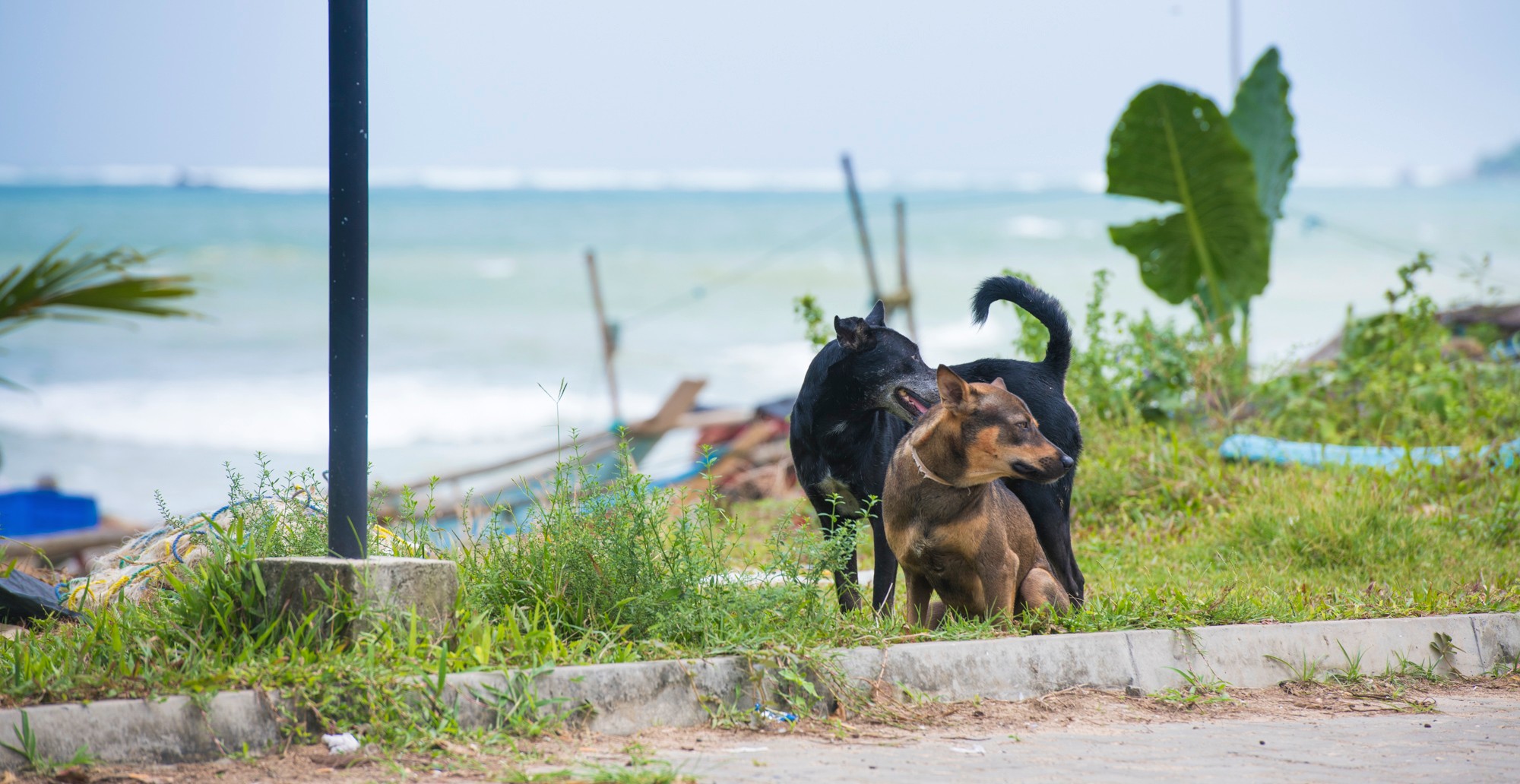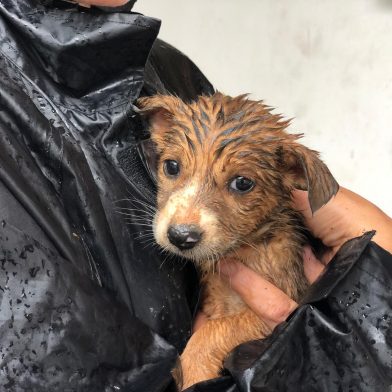
Street dogs have been a part of Sri Lanka’s culture for generations and there are an estimated 1-3 million of them on the island.
We understand how shocking it can be to see so many dogs on the street in Sri Lanka, if you come from a culture where dogs are domesticated and living like royalty in people’s homes.
However, western ideals aren’t always appropriate in a developing country and we’re not here to be white saviours – west ain’t always best, y’know!
There are many different categories of street dog – those who are owned and allowed to free roam, those who live on the street but have human guardians in the community (who look out for and feed them), and those who are independent and shy away from humans.
Vet and WECare founder Dr Janey came to Sri Lanka in 2014, immersing herself in the local community and carefully assessing the situation before deciding how best to act.
She realised that street dogs need the following things to live happy lives:
- A food and water source (whether that’s a human putting down rice packets, or foraging through bins for goodies).
- Shelter (this could be someone’s outhouse, a shop entrance or a sheltered place in nature).
- Access to veterinary care (this is why organisations like ourselves come in).
- Freedom.
So long as there’s a veterinary organisation like WECare present to bridge the gap between the street dog and health care, we believe in putting street dogs back on the street, wherever possible.
Here’s why…
Pet ownership in Sri Lanka is different to the western world
Having a pet dog in the developing world isn’t as common as it is in the west, and many people don’t see pets the way we do.
The alternative to living on the street isn’t often being pampered and treated like royalty – a large number of pet dogs here are kept as guard dogs, and aren’t let inside the house. Many live in tiny cages, rarely let out to stretch their legs.
Sri Lankans have been through a hell of a lot in recent years – with civil war, the 2004 tsunami and last year’s Easter Attacks – so pet welfare hasn’t always been a priority. Which is pretty understandable.
Treating a pet like a king is a privilege not afforded to everyone. But with no animal welfare laws in place to protect dogs that are treated badly here, nothing can be done about it
It’s pretty arrogant of us humans to think that we hold the key to canine happiness.
Street dogs love their freedom
Domestic dogs in the western world (usually) have the advantage of a guaranteed food source, veterinary care and love, but they are at the mercy of their masters.
We decide when they eat, when they exercise and when they can go outside to the toilet. Sorry to be the one to point it out but our pet dogs don’t stay with us because of our sparkling wit and charming personality – it’s because we’ve made them dependent on us and hold the key to their survival.
They’re essentially imprisoned – it might be a prison of love, but it’s still a prison.
Street dogs in Sri Lanka get to roam the streets as they please – chasing as many cats as they like, exploring all the scents of the neighbourhood and kicking about with their mates late at night. Dogs are pack animals and thrive when socialising with other canines.
Their pet counterparts in the west are given one or two walks a day (off the lead if they’re lucky!) and have to adhere to a human daily routine i.e. going to bed when their owners do.
It’s essentially like living through the UK’s coronavirus lockdown but for their entire lives.
Exploring is in a street dog’s blood – why would we deny them that? It’s pretty arrogant of us humans to think that we hold the key to canine happiness.

It would be impossible to rehome them all
With an estimated 1-3 million street dogs in Sri Lanka, and a population of 22 million people, that’s one dog for every seven people.
There just aren’t enough potential homes.
We get a few enquiries about adopting dogs out overseas, but it’s a long and expensive process, so isn’t a viable solution either.
WECare is a busy veterinary hospital, not a shelter and we don’t have the room (or money!) to give a home to every single street dog that comes through our doors.
Even if we did, we struggle enough with the power dynamic between our handful of resident dogs in the clinic garden, let alone having to deal with hundreds of dogs jostling for status.
Putting dogs back on the street in our local area – where we know the community is keeping an eye on them – is the most sustainable solution, from our veterinary viewpoint.
There is no one-size-fits-all solution
There are other similar organisations looking out for street dogs on the island, and each of us has a different approach.
We believe that there is no perfect solution. Yes, there are risks to living on the street but we believe it’s better to have a (potentially) shorter, happier life than a long, miserable one.
There’s no one-size-fits-all. That’s why we have exceptions to our rule and assess each animal on a case by case basis.
If we believe a dog is too young or vulnerable to go back to a life on the streets, we will keep them here until we can find them a forever home.
Because of this, we do have a number of dogs who have been with us long-term. To help us out with the cost of housing these cuties, why not sponsor a WECare dog?
Or, to help us out financially with the daily running of our busy street dog hospital, you can donate here.
Thanks legend.
Share this post
Go on, give it a share and spread the word about WECare to all your online pals!
Related reads





